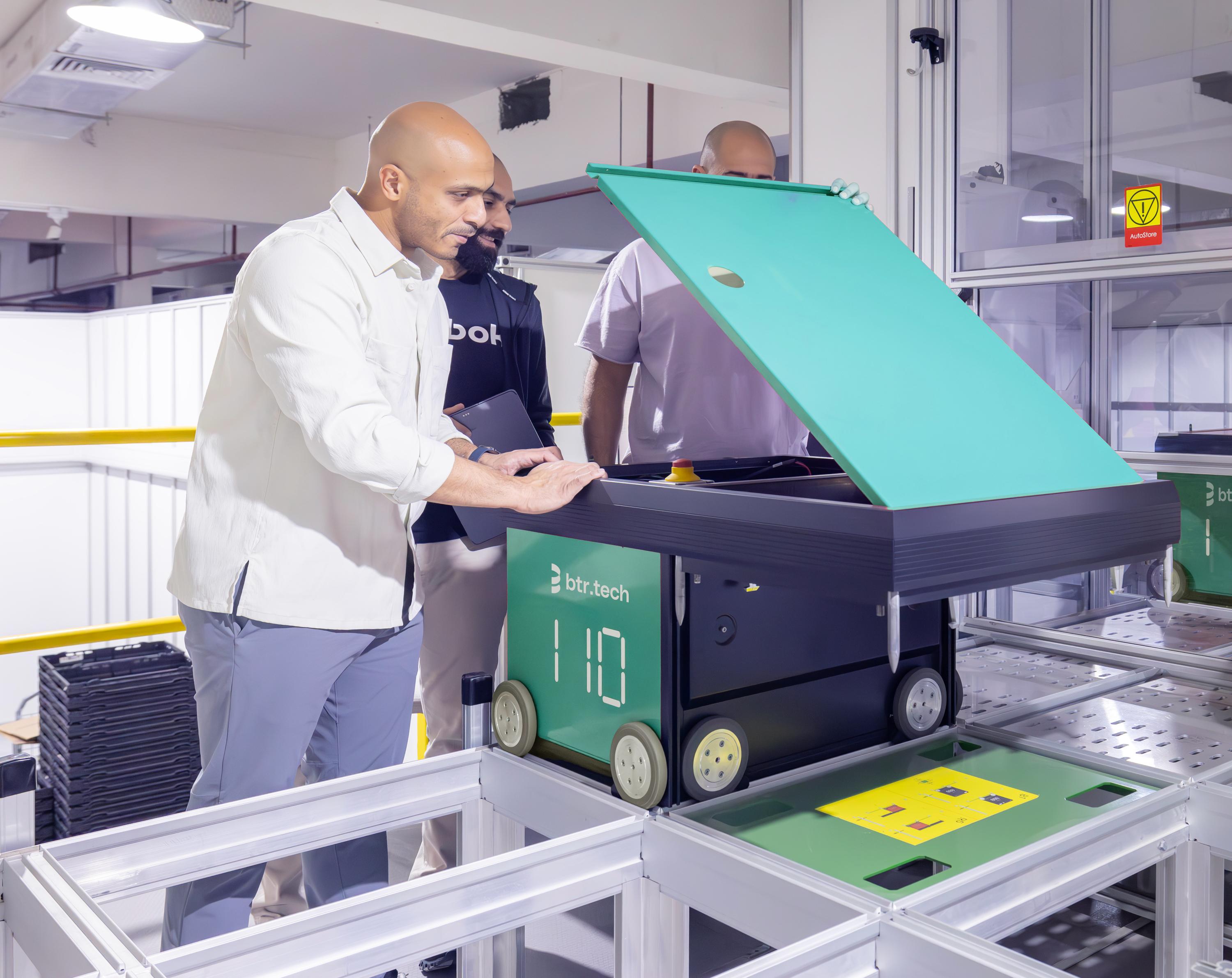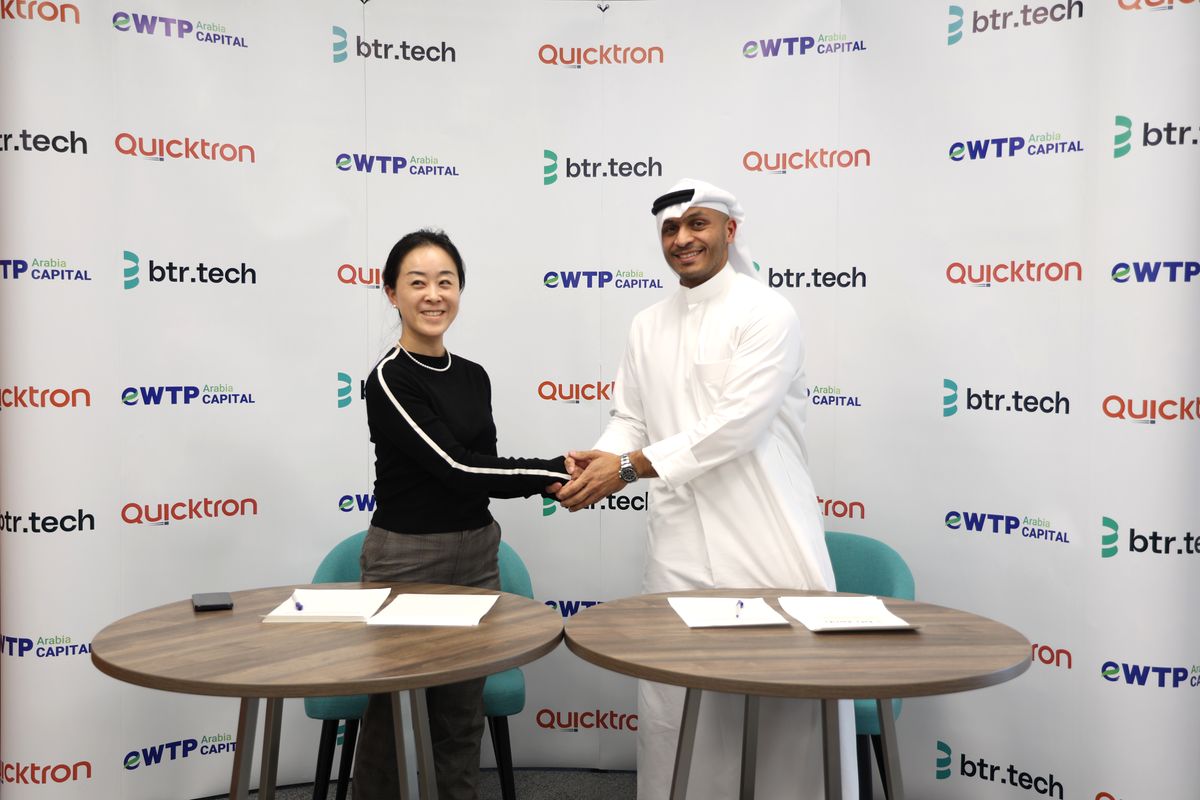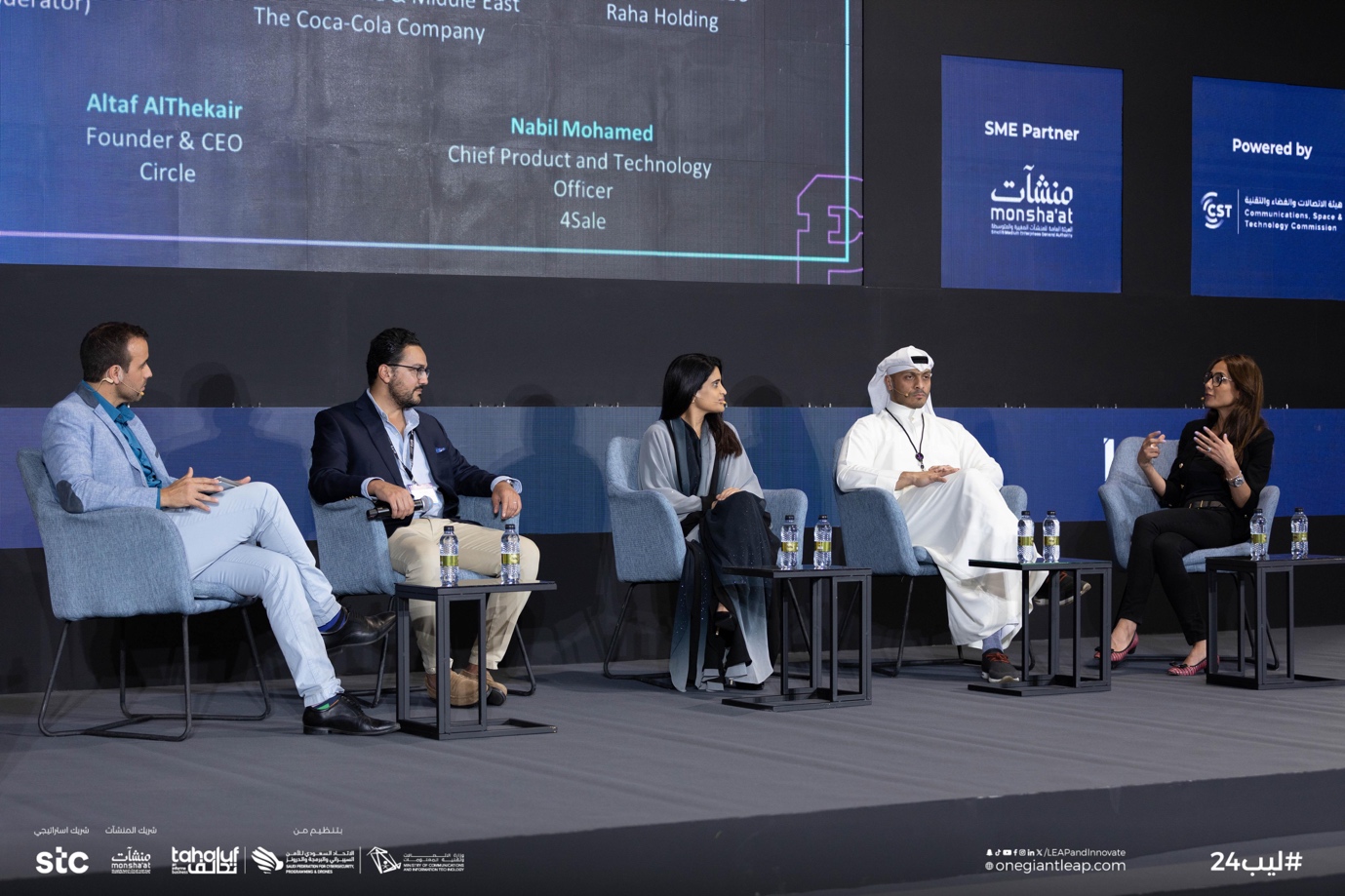
China has spent many years developing its automation and robotics industries, and it is now the appropriate time to bring that expertise to the member countries of the Gulf Cooperation Council, or GCC, said Saleh Al Tunaib, co-founder and CEO of btr.tech based in Kuwait.
The GCC comprises Saudi Arabia, Kuwait, the United Arab Emirates, Qatar, Bahrain, and Oman.
“We’ve been working with Chinese companies for a while and we found there’re huge opportunities,” Al Tunaib said, noting that there was “ease of working and efficiencies” in the way the Chinese companies do business.
“Usually, when we try to bring technologies from Europe to the Middle East, it takes between nine to 12 months to bring them here,” Al Tunaib said. In contrast, Chinese companies take three months to come in and deploy their technologies, he added.
Al Tunaib noted that he has been working in the retail industry for almost 15 years, and said he sees a huge need for automation in the sector. For instance, the value of e-commerce can be expected to reach $40 billion in the next couple of years, in his view.
ALSO READ: Lawmakers move to drop references to colonial era

When his team built their first automated warehouse, they went through a process of trying to choose the right technology. “We dealt with mainly US and European technologies, as the access to Chinese technology was very difficult … in 2020,” he said.
It was only when his team gained more exposure to the Chinese market that they realized the existence of many Chinese technologies that they could bring to the Middle East region.
In the Middle East, there was not enough proper access to Chinese technology, he said. Al Tunaib’s team seeks to bridge the gap between China and the Middle East as there is a “huge opportunity” to bring Chinese e-commerce technology to the region.
According to Al Tunaib, there is great growth momentum in Saudi Arabia as the nation plans to spend $27 billion over the next four years to help improve the logistics and ports sector alone
Al Tunaib’s team, which runs a logistics hub out of Kuwait, operates its own software to integrate the use of robotics in the retail industry.
After operating an Autostore for a few years, his business gained a better understanding of the Chinese market, he said. Then, with the help of eWTP Arabia Capital, which provides access to technology from mature global markets, Al Tunaib’s team visited China in January.
They visited four cities in China, in January, including Guangzhou, Shenzhen, Shanghai, and Hangzhou, where they interacted with multiple robotics companies.
ALSO READ: SAR to host over 100 mega events in H2
According to the CEO, his company is setting up clients withan auto-parts and e-commerce warehouses in Kuwait across 35,000 square meters with the help of robotics technology from China. One of the companies involved in the project is Quicktron Robotics, a Shanghai-based global leader in robotic logistics solutions.
Al Tunaib said Quicktron is one of the first companies to adopt the Automated Case-handling Mobile Robot (ACR) technology. “Their technology is superior,” he said. “In addition to that, they've been extremely attentive to innovations in the field.”
His team has been working with multiple other Chinese manufacturers such as Megvii and Senad since its visit in January, he said, adding in fact one of those CEO will be visiting Kuwait at the end of May.
There’s no need for any data to prove the need to connect Asia with the GCC and Europe. The integration of cross-border operations will bring in more business and connect us even further, he added.
Such an integration of cross-border operations will “take us to another level. It will change the way that we do business”, Al Tunaib said.

According to Al Tunaib, there is great growth momentum in Saudi Arabia as the nation plans to spend $27 billion over the next four years to help improve the logistics and ports sector alone.
The investment is part of Saudi Arabia’s Vision 2030 – and aims to connect Asia through Saudi Arabia to Europe by becoming a global logistics hub. Since this cross-border integration will have a huge need for better logistics, this is where btr.tech come in as a logistics advisor and service provider, he said.
As the logistics industry is poised for significant growth, btr.tech and Quicktron are joining forces to introduce advanced robotics solutions that cater to the evolving needs of the market, Al Tunaib said.
By leveraging the Chinese company’s expertise in automation, Al Tunaib’s company aims to transform the logistics operations of e-commerce businesses throughout the GCC region.
“Today we represent Quicktron, Shenzhen DBL Technology, and many other Chinese companies in the Middle East region,” he added.
Al Tunaib said that an obvious advantage of Chinese companies is their focus on a niche in the logistics sector.
“Although there are different segments of robotics, including drones or electronic vehicles, within each segment of robotics every Chinese company has its own focus, such as ACR. The Chinese companies want to be the best in a specific technology.
“In many other countries, what we've seen is that they try to do something of everything,” he noted. In this process, “sometimes you lose focus”, Al Tunaib added.
Al Tunaib collaborates with Chinese companies in two ways. One is by bringing in technology to the region and adopting these for the public and private sectors. The other way is to bring in relevant technologies and manufacture partially or entirely in the GCC.
“So, there are ways for us to innovate together, bring our minds and resources together,” he said.
According to Al Tunaib, the people of Gulf countries and China share similar traits, such as hospitality. “I love China and its people,” he said.


